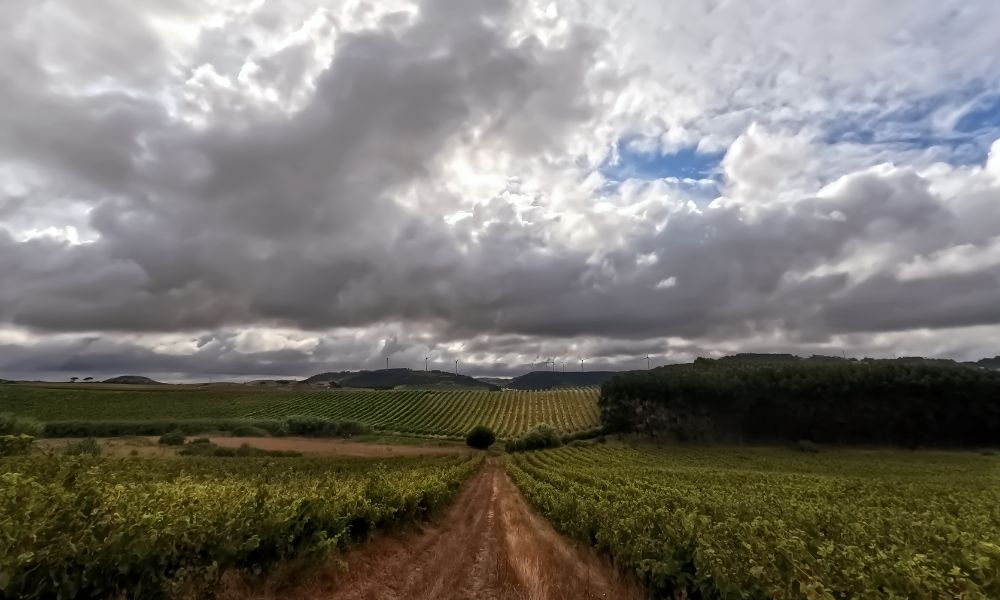Mid-Valley Investment Co. Sues Federal Crop Insurers Over Denied Claim for Weather-Damaged Grapes
Kern County, California, August 5, 2025 – Mid-Valley Investment Co., LLC, a Kern County-based grape grower, has filed a lawsuit against the Federal Crop Insurance Corporation (FCIC), the Risk Management Agency (RMA), and RMA Director Pat Swanson in the U.S. District Court for the Eastern District of California. The suit, lodged on August 1, 2025, challenges the denial of a 2023 crop insurance claim for approximately 490 acres of Chardonnay grapes damaged by severe weather, spotlighting disputes over irrigation practices and federal crop insurance standards.
Case Background
Mid-Valley held a federally reinsured crop insurance policy through AgriSompo North America, Inc., covering its Chardonnay grape crop against losses from natural events such as drought, heat, frost, and hail. The complaint details that in March and April 2023, the vineyard suffered significant damage from hailstorms on March 21 and 23, and freeze events on March 26 and April 4. Mid-Valley submitted a Notice of Loss to AgriSompo on May 9, 2023, citing freeze as the primary cause and hail as secondary. Insurance adjuster Kelly Remick conducted an initial inspection and three follow-up visits through the summer, confirming widespread damage without raising concerns about irrigation practices.
On March 15, 2024, AgriSompo denied the claim, asserting that Mid-Valley failed to follow “good farming practices” (GFP) by not providing sufficient irrigation during the 2023 growing season. A second denial letter on April 22, 2024, reiterated this stance and informed Mid-Valley of its right to request a GFP determination from the RMA. Mid-Valley contested the denial, arguing that the crop was already heavily damaged before the irrigation season and that the San Joaquin Valley saw unusually high rainfall, including 1 to 4 inches from Tropical Storm Hilary in August 2023, reducing the need for additional irrigation. On August 28, 2024, the RMA upheld the denial, concluding that inadequate irrigation rendered the crop loss uninsurable.
Legal Arguments
Mid-Valley’s lawsuit seeks to reverse the denial and compel processing and payment of the claim, arguing that the RMA’s decision was “arbitrary, capricious, and not supported by the evidence.” The company contends that the hail and freeze events, not irrigation practices, caused the crop damage. It further asserts that the RMA’s GFP determination failed to account for the region’s exceptional rainfall, which offset irrigation needs. The complaint cites the Federal Crop Insurance Act (FCIA) and prior case law, such as Singh v. Fed. Crop Ins. Corp. (2018), where a GFP-based denial for improper irrigation withstood judicial review, but Mid-Valley argues its case differs due to documented weather impacts and adequate farming practices.
The case also draws on the precedent set by Federal Crop Ins. Corp. v. Merrill (1947), where the U.S. Supreme Court held that FCIC regulations are binding regardless of policyholder knowledge, emphasizing the government’s authority to define insurable conditions. However, Mid-Valley’s complaint echoes the dissent in Merrill, which criticized rigid regulatory enforcement as unfair when policyholders face losses from natural causes without clear guidance.
Broader Implications
The lawsuit highlights ongoing tensions in the federal crop insurance program, which cost $17.3 billion in 2022, with $12 billion in premium subsidies and $3.7 billion in administrative costs to private insurers like AgriSompo. The program, administered by the USDA’s RMA and FCIC, has faced scrutiny for fraud and claim disputes, as noted in a 2023 GAO report. Mid-Valley’s case underscores challenges in interpreting GFP standards, particularly when weather events and farming practices intersect. A 2020 National Sustainable Agriculture Coalition report noted that strict GFP definitions can disadvantage farmers adopting conservation practices, though Mid-Valley’s dispute centers on weather and irrigation rather than conservation.
Public sentiment on X is limited but reflects broader frustration with insurance denials. For instance, a post by @NIKHILLJHA on July 28, 2025, described a court ordering an insurer to pay a claim after rejecting it on questionable grounds, suggesting judicial skepticism of overly stringent denials. While not directly related, such sentiments indicate public support for fairer claim resolutions.
Conclusion
Mid-Valley Investment Co.’s lawsuit against federal crop insurers brings to light the complexities of agricultural insurance, where policyholders face stringent regulatory standards amid unpredictable weather. The case, still in early stages, could influence how GFP determinations are applied, particularly in regions hit by extreme weather like California’s 2023 storms. As the court deliberates, the dispute underscores the need for clearer guidelines and equitable claim processes to support farmers navigating the financial risks of modern agriculture.
Sources: Insurance Business America, National Agricultural Law Center, Federal Crop Insurance Corp. v. Merrill (1947), posts on X
